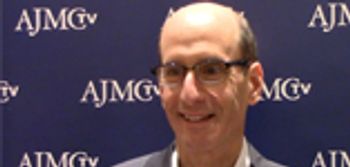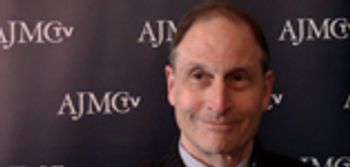
GOP presidential hopeful Ben Carson has presented his plan to overhaul the Affordable Care Act and replace it with a healthcare system that uses tax-sheltered personal savings accounts and reforms Medicare and Medicaid.

GOP presidential hopeful Ben Carson has presented his plan to overhaul the Affordable Care Act and replace it with a healthcare system that uses tax-sheltered personal savings accounts and reforms Medicare and Medicaid.

The Affordable Care Act's individual mandate will reach a point when the price of a bronze plan will cost less than paying the penalty of not being insured for many Americans.

What we're reading, December 9, 2015: the federal government recovered $200 million from state's whose health insurance exchanges faltered; drug cocktails are responsible for majority of drug overdose deaths in Massachusetts; and healthcare organizations are not confident in their ability to share patient data while protecting patient privacy.

Across the US, the states' rates of uninsured individuals can vary dramatically, and while all states have made gains in covering individuals, these 5 continue to have the highest uninsured rates.

A study of the prevalence and treatment of psoriasis in older Americans suggests the presence of economic and racial barriers.

What we're reading, December 8, 2015: Cigna remains committed to participation in Obamacare exchanges; Puerto Rico demands the US fix healthcare funding disparities; and fewer Americans struggle to pay medical bills.

After 5 years of low growth, CMS reports that national health spending grew 5.3% in 2014, which is still slower than most years prior to the implementation of the Affordable Care Act.

What we're reading, December 7, 2015: Mylan is subpoenaed over pricing of generic doxycycline antibiotic products; Congressional hearing this week on drug pricing controversy; new superbug on the rise; and Obamacare penalty for being uninsured may not be enough to get people to sign up.

A new coalition of patient advocacy groups representing more than 10 million patients launched in Washington, DC, with the goal of providing better healthcare for Americans.

A student-led study shows why patients remain uninsured despite the passage of the Affordable Care Act.

There are a number of areas where pharmacy benefit managers can help support employers with the high-cost of specialty pharmacy drugs, but so far they have only been doing a good job in some priority areas, said Bruce Sherman, MD, FCCP, FACOEM.

The deal is the latest in a wave of mega-mergers that are reshaping managed care in the wake of the Affordable Care Act.

Efforts to improve patient safety have reduced hospital-acquired conditions by 17% from 2010 to 2014 and saved 87,000 lives and nearly $20 billion

A measure to delay the unpopular "Cadillac tax," part of President Obama's health reform law, overwhelmingly passed the Senate by a 90-10 vote on Thursday.

The 17% decline in hospital-acquired conditions from 2010 to 2014 is the result of a decades long campaign and means lives saved, the avoidance of pain and suffering, and less costly care, said David Blumenthal, MD, MPP, president of The Commonwealth Fund.

What we're reading, December 2, 2015: Gilead priced Sovaldi knowing the high cost would be a challenge for patients and payers; Senate Republicans will vote Thursday on Obamacare repeal and expect to get the needed votes; and a report calls for a better focus on women's health.

Entering into the Affordable Care Act health insurance marketplaces was a bad decision, according to the CEO of UnitedHealth Group Inc, which is considering pulling back from participation in 2017.

Financial and communication barriers are major impediments to quality end-of-life care for ethnic minorities.

What we're reading, December 1, 2015: $1 alternative to Daraprim being made available; over-the-counter medications are convenient and affordable but have their own dangers; and an analysis looks at the reasons why prescription drugs are so much more expensive in the US.

What we're reading, November 30, 2015: the Spanish language HealthCare.gov is lagging in sign-ups; the overall federal insurance exchange has fewer preferred provider organizations; and many Americans don't understand why they need the flu vaccine.

A small majority (51%) of US adults now believe that the federal government has a responsibility to ensure all Americans have health insurance coverage.

This week in managed care, CMS proposed changes to the health insurance marketplaces for 2017, AJMC highlights 5 takeaways from the HHS Pharmaceutical Forum, CVS chose to cover just 1 PCSK9, and industry reacts to FDA regulating diagnostic tests.

The largest health insurance carriers in each Affordable care Act marketplace had a 75% higher premium increase from 2014 to 2015 compared with other same-state carriers.

Preventing hospital readmissions has long been an important general focus in the healthcare field-and this importance increases tenfold when it comes to children's health.

Diabetes is a growing epidemic in the United States and new research has indicated that half of healthy 45-year-olds will develop pre-diabetes and one-third will develop diabetes at some point.

259 Prospect Plains Rd, Bldg H
Cranbury, NJ 08512
© 2025 MJH Life Sciences®
All rights reserved.
